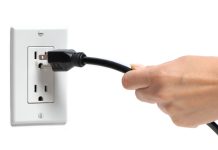Silverback Gaming founder Raphael DiGuisto discusses some of the challenges for European slot developers when it comes to entering the US market. He breaks down the differences and tempers expectations for those looking to make the leap across the pond.

The US igaming market presents endless possibilities for slot developers, but it also poses its fair share of challenges. As more and more states continue to legalize online gambling, a tide of developers is turning their attention stateside to compete for their market share.
Cracking the US market won’t be as simple as it looks. European developers expecting to simply be able to roll out their biggest hits in the States are going to be in for a surprise. It is becoming increasingly clear that American players have very different expectations from their European counterparts. The country’s gambling scene is rooted in land-based traditions, and developers hoping to make a name for themselves in the country will need to adapt.
Changing the culture
The shift from land-based gambling to online will take some time, and the popularity of land-based slots will dictate the themes and mechanics that developers can use in games, at least in the early days. Bombarding the market with popular European titles will simply not suffice, and developers will need to put on their creative hats and adapt to American players if they want to crack the market.
One of the key challenges facing developers is changing the culture and experience around slot gaming. US players instantly associate slots with land-based casinos, and we need to find a way to make online casinos an experience in their own right. Growing pains are natural, and developers will need to be quick to adapt to both demand and any legalization that appears.
There are some signs of change starting to shine through though. European imports are finding a home among American players, with mechanics like Megaways being a great example. The mechanic has never existed in US land-based slots but has performed exceptionally well among players at online casinos. Developers will be looking for similar success with other innovative mechanics in the future, and we hope to have found a sweet spot with our Clockways mechanic.
It’s not just the mechanics that are influenced by the land-based slots, with the distinct visual style of land-based games resonating too. As a rule, slots that are directly imported from land-based machines perform well in the US market. This can be costly, with many slot machines using 3D graphics and extensive designs. European slots tend to stick to simple, 2D designs that are cheaper to produce.
However, plenty of popular themes, such as those based around ancient civilisations, are finding a home with American audiences. Tapping into this could be essential to moving the market away from land-based imports and introducing it to a raft of easier-to-produce titles.
We are also seeing some changes in the math models that are successful with American players. The free-for-all high volatility we see in some European markets is watered down, with players tending to prefer the slightly lower volatility model that has been popular in the UK.
Dealing with a maturing market
Of course, it’s not just as easy as drip-feeding popular European mechanics and themes to the audience until the demand grows. One of the biggest constraints for slot developers in the US comes through legislation. Individual states are shifting their goalposts as the market matures, which can greatly impact how we develop games.
Pennsylvania, for example, recently started allowing games with persistent features. This is a big win for slot developers as it means we do not have to change games that might use these types of features. We are slowly seeing a positive shift in the right direction on this front. When one state makes a positive step that is well-received, other states follow suit, leading to a steady stream of harmonious legislation that will allow the market and creativity to flourish.
Like most things, the market will dictate the product, and as the US audience continues to grow and as demand gets higher, the kind of slots that will succeed in the United States will become clearer. In these early days, slot developers need to be ready to adjust their course and be prepared for change. Sticking to the European blueprint is not going to guarantee success, and it is up to slot developers to write a new and more innovative playbook if they want to make a home for themselves stateside.














